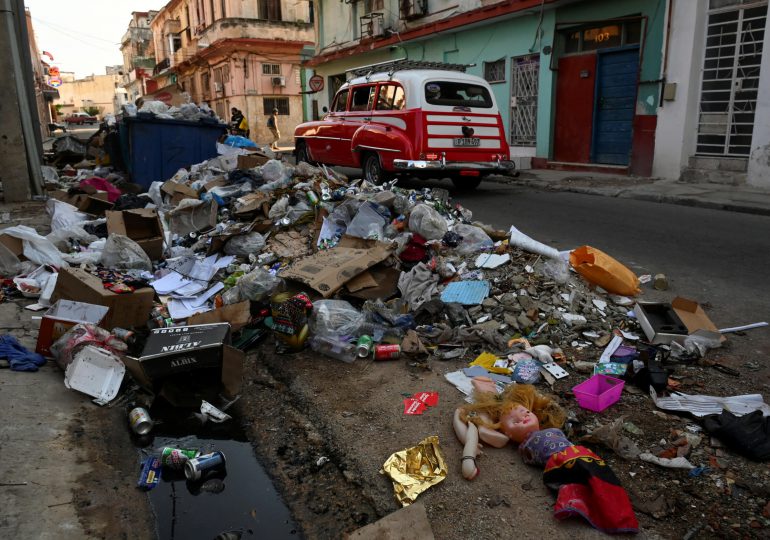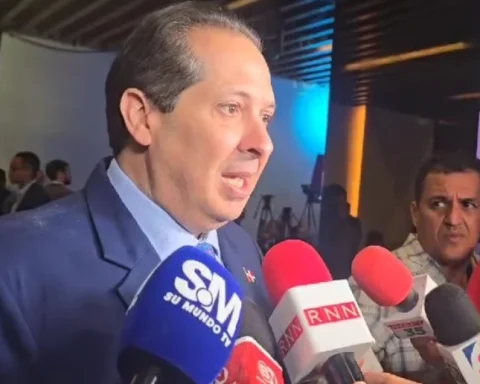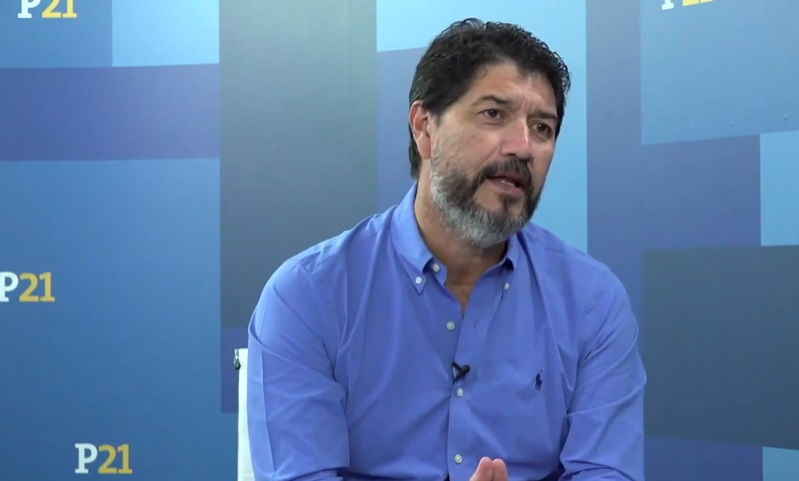Agencies;- With a net full of beer cans and waste in one arm and his fins in the other, diver Reinier Fuentes emerges from the crystal-clear waters of a beach in Havana, reflecting the problem of garbage accumulation affecting the Cuban capital.
Fuentes, president of an organization that helps clean the seabed off the coast of Havana, joined the Cuban UNESCO Commission’s call in mid-August for a citizen collection of garbage in Guanabo, a beach on the outskirts of the city.
Like other beaches in the city, Guanabo is often littered with cans and plastics during the summer days when city dwellers seek it out to mitigate the heat.
The problem “is that there are companies on the beach that are dedicated to cleaning up, but at the bottom of the sea there is no one doing it except volunteer activists,” Fuentes told AFP, with the small waves still hitting his feet.
The accumulation of metals is currently “something abundant” and the greatest challenge on the coasts, admits the head of natural resources and climate change in Havana, Solvieg Rodríguez.
However, the real nightmare begins as one enters this metropolis, which accumulates more than 30,000 cubic metres of rubbish every day, 7,000 more than a year ago, according to official figures.
“Dirt and mosquitoes”
Mountains of solid waste mixed with organic waste give off foul odors and attract clouds of flies in some corners of the central municipality of Cerro.
“My kitchen faces the same garbage dump, so you have to cover everything because otherwise you’re eating dirt and mosquitoes. Bedbugs walk on the walls,” Lissette Valle, a 40-year-old housewife who lives opposite a street garbage dump in this municipality, told AFP.
The stench of sewage overflowing from the sewers under bags that neighbors throw directly into the street, due to the lack of containers, reaches the third floor of her apartment.
According to data from the Provincial Directorate of Communal Services, Havana only has 57% of the equipment – including 100 garbage trucks – available to collect the garbage that the capital, which has 2.1 million inhabitants, has.
Donated by Japan, these vehicles “began to break down” in 2023. The company that sold the spare parts left and due to the US embargo it is impossible to obtain supplies for their repair, municipal authorities explained to the state newspaper Granma, in a report published in July.
“There is one issue that is affecting us: fuel,” Miguel Gutiérrez Lara, head of supervision and inspection in Havana, told the newspaper, referring to the severe gasoline shortage that has affected the island since 2023.
“Almost everyone has left”
Gutiérrez complained about the lack of workers due to low salaries and pointed out that at least five of Havana’s 15 municipalities lack a coordinator for garbage collection.
“Almost everyone has left,” says a 30-year-old street sweeper who prefers not to reveal his name and says he does not even have gloves to do his job.
“You are exposed to bacteria” for a minimum wage, which in Cuba is equivalent to 17 dollars a month, laments the man, with no front teeth and tanned skin. “It’s a garbage dump on the streets,” he exclaims before slowly pushing his rickety garbage cart.
According to local media, the authorities hired a private service to carry out the work in this municipality. AFP requested information but received no response.
“This has gotten out of hand,” diseases “are spreading (…) it’s full of mosquitoes,” says Jesús Jiménez, a 61-year-old disease prevention inspector, worried about the spread of oropuche, a disease that arrived for the first time in May and is transmitted by the bite of these insects, just like dengue.
The Cuban capital has three large open-air landfills.
For Dulce Buergo, president of the Cuban National Commission for UNESCO, part of the solution lies in greater civility.
“If you come to the beach with four bags, you should leave with four bags, even if the fourth is full of trash,” says this woman who heads the clean-up campaign in Guanabo, an initiative that seeks to extend to the entire coastal edge of the city.
















